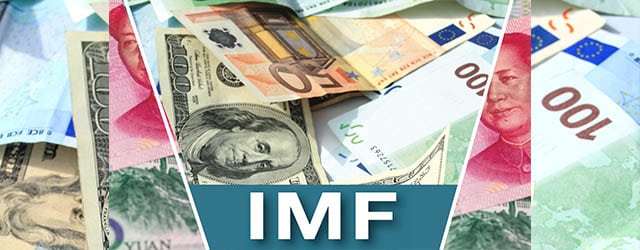The executive board of the International Monetary Fund recently held an informal meeting to discuss a staff report that found some deficiencies in the renminbi as a potential reserve currency.

The report urged the board to delay adding the Chinese currency to the IMF’s special drawing rights (SDR) reserve currency basket until after September 2016.
Although the renminbi has made big strides as a trade settlement currency—and meets the IMF’s gateway criteria for exports—the debate centers on whether it is “freely usable.” When China’s central bank devalued the currency by 1.9% in August, it also moved to make the renminbi more closely tied to market forces by linking the daily fixing to the previous day’s close.
Capital-account convertibility is not required for the renminbi to be included in the SDR. The basket is currently made up of the dollar, the euro, the pound sterling and the Japanese yen. Although the renminbi is increasingly used in cross-border transactions, the IMF says it is thinly traded in North America and not commonly used in international debt securities.
The SDR’s composition is reviewed every five years. This is one of those years.
For its part, China took another step toward free usability in July, when it opened its domestic bond market to central banks and sovereign wealth funds. Some 60 central banks, including a number of African countries, already hold renminbi in their currency reserves. At the same time, foreign companies have increased issuance of renminbi-denominated bonds.
Analysts say conditional approval for adding the renminbi to the SDR lineup is likely to come later this year, with implementation at a later date. But the topic could be a hot potato at the upcoming annual meetings of the IMF and the World Bank in Lima, Peru, in October. The IMF has linked the SDR issue with quota reform because the weighting of the renminbi in the reserve currency bucket would be linked to the size of China’s quota position in the IMF, according to Marc Chandler, global head of currency strategy at Brown Brothers Harriman.
“IMF reforms depend on new capital, but the United States is balking at paying the new quotas,” Chandler says. “If the renminbi is not approved to join the SDR, the United States would be blamed, and China would be frustrated.”
Many IMF member countries say it would be difficult for them to adjust to a change in the SDR basket on January 1, 2016. A delay in implementation would give them more time to prepare.
“We still think it is highly likely the renminbi will be included, though for technical reasons the actual date of inclusion may be extended to September 30, 2016, to give reserve managers time to adjust,” says Wang Tao, chief China economist for UBS. The fact that such technical issues are being discussed indicates there’s a high likelihood of SDR inclusion, she says.
IMF managing director Christine Lagarde says the renminbi’s accession to the SDR basket is a “matter of when, not if.” Analysts say the IMF may take other steps to assuage its emerging markets members. When Lagarde’s term expires next year, her replacement might come from Asia, they say.



